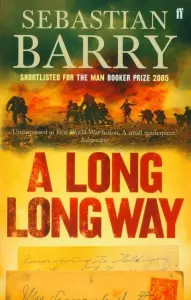
Willie wakes up in hospital. The explosion has lacerated Willie and given him extensive body burns, though luckily his helmet protected his face from the blast. The trauma of the concussion has given him shellshock, and his head and left arm jerk uncontrollably.
Moran tells Willie by letter that the 16th has “ceased to exist” and General Gough has been dismissed. An Irish officer visits Willie on a visit. He cheerlessly harangues Willie about Irish discontent at home and the unwillingness of the Irish to accept conscription. He is pleased that Home Rule has been rejected by the British government and promises retribution against ‘the Sinn Fein’ nationalists at home. Willie listens dutifully. He reads about the recriminations after the German successes of Operation Michael, and the scapegoating of Irish soldiery. Willie is saddened to think of the end of Redmondite aspirations.
Willie becomes close to a nurse who treats his wounds and burns. Treating him, one day she notices that Willie appears to have a tattoo of a harp and crown near his heart. The heat from the explosion has branded the pattern onto Willie’s skin from Christy Moran’s superheated medal. He tells the nurse that he doesn’t mind it at all.
Later, Willie asks the nurse to hold him. She is reluctant to, given rules. He pleads with her and she assents. The moment is transcendent, moving him from his current cares to thoughts of Gretta, and a longing for love. As he is held, Willie is amazed to find that he has stopped shaking. He senses the deep sadness of the nurse who holds him, and wonders if her sadness cured him.
His shaking under control, Willie writes a letter to his father. He lies about the extent of his injuries. He writes to tell his father how much he loves him, and how grateful he remains for his love and care. He reminds his father of his own memories of childhood, chief of which is a memory of James Dunne encouraging his children to sing to his dead mother. He ends by recognising that his experiences at war have caused him to think about the world in a different light, and that this change in him has offended his father, but affirms his love for his father.
When Willie privately reflects on his experiences, he feels not anger but the omnipresence of death, and knows that his previous fervour and loyalty to the British cause has waned at last to little but a feeling of simple loyalty to his father.
